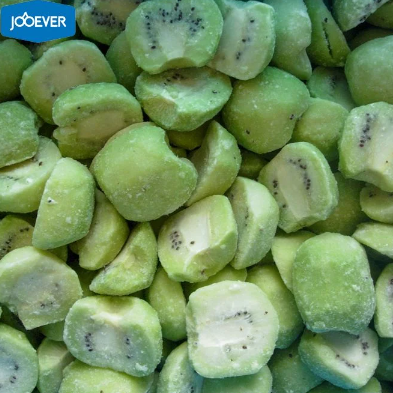Your reliable partner for frozen foods
Freezing fruit preserves it because at low temperatures the bacteria that contribute to its decomposition do not increase. When we subject fruits or any other food to this process, what we are doing is freezing the water they contain: it changes from a liquid to a solid state.
We might worry that this process would cause some of the nutrients in the fruits to be lost, but in general a decrease in temperature does not affect the other substances that compose them.
One of the main reasons for fruit consumption is because of its good fiber content, which helps digestion and we can rest easy because it is not affected by freezing.
No. Industrially frozen fruits and vegetables do not have preservatives added because they are frozen through a process called Individual Quick Freezing (IQF). They also do not have added salt, unlike canned vegetables whose preservation medium is brine (water and salt).
On the other hand, when it is frozen at home (mainly fruits) some substances are usually added that act as preservatives; for example: sugar, syrup and lemon juice. These substances are added in order to avoid enzymatic browning (brown color appearance).

Frozen fruits are fruits that have been picked at their peak ripeness, cleaned, and then frozen quickly to maintain their freshness, nutrients, and flavor. They are a convenient and healthy option for those who want to enjoy fruits year-round, regardless of the season.
Here are some things you should know about frozen fruits:
Frozen fruits can retain most of their nutritional value, such as vitamins, minerals, and antioxidants, during the freezing process. In some cases, frozen fruits may even have higher levels of nutrients than their fresh counterparts, which can lose some of their nutritional value during transport and storage.
Most types of fruits can be frozen, including berries, mangoes, peaches, pineapples, bananas, and more. You can buy frozen fruits in bulk or individually packed, depending on your needs.
Frozen fruits can be used in a variety of ways, including smoothies, desserts, toppings for yogurt or oatmeal, and as a substitute for fresh fruits in recipes.
Frozen fruits can be stored in the freezer for several months, and their quality will not significantly deteriorate during that time. To prevent freezer burn, it's best to store them in an airtight container or freezer bag.
Frozen fruits are easy to prepare - simply thaw them in the refrigerator overnight, or use them straight from the freezer if you're adding them to a smoothie or cooking them.
Frozen fruits are available year-round in most grocery stores, making them a convenient option for those who don't have access to fresh fruits.
Overall, frozen fruits are a healthy and convenient option for adding more fruits to your diet, especially during the off-season when fresh fruits may not be available or may be more expensive.
We provide you with frozen fruits that are contaminants free, healthy and durable. If you wish to have fruits in your refrigerator all year round, check out our frozen fruits varieties. Look here to order.